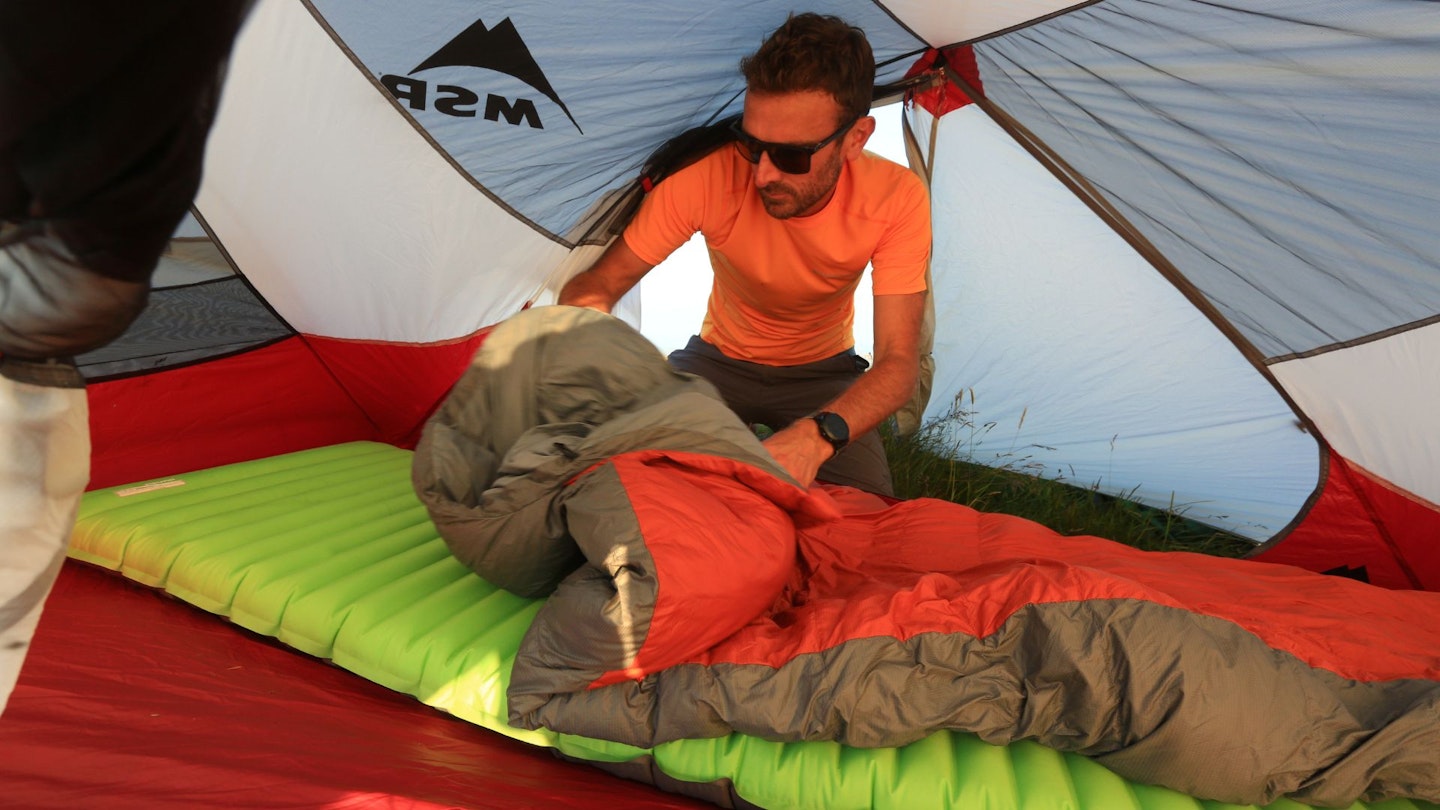Your sleeping bag should be a trusty companion on countless adventures, from camping out on serene peaks to spending a night or two on your pal's sofa. Yet, despite the ubiquity of these cosy cocoons, many of us are guilty of committing a cardinal sin when it comes to putting it away. And that sin is folding it.
Yes, you heard me (well, read me) right. Folding your sleeping bag is akin to pairing salmon and apple sauce: technically possible, but fundamentally wrong. Let's delve into the science of properly packing your sleeping bag, ensuring it remains as warm and welcoming for years to come.
Why folding (or rolling) is a faux pas
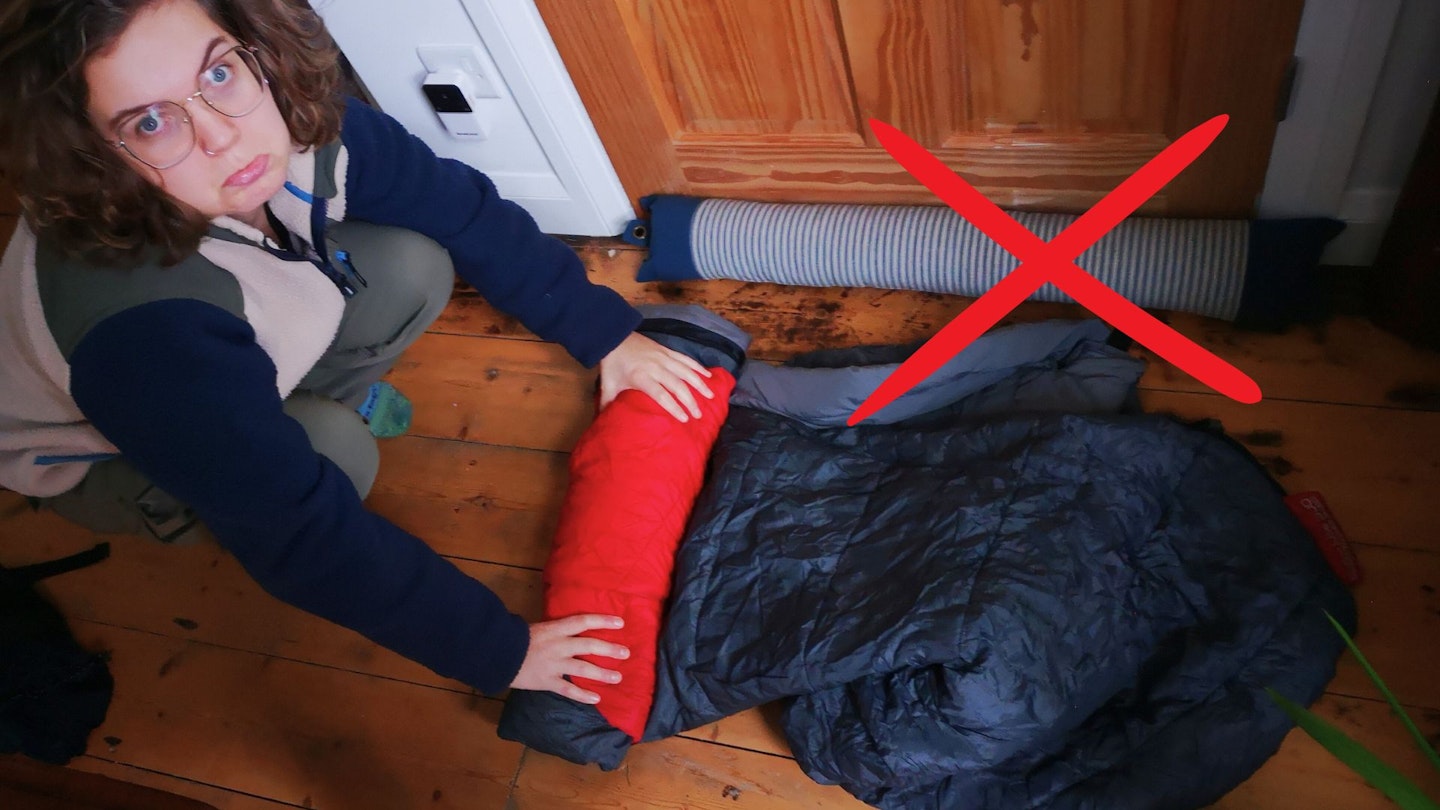
Simply put, folding or rolling your sleeping bag along the same creases each time can cause the insulation to compress unevenly, leading to cold spots. Over time, these folds can weaken the fabric.
And let's not mention the fact that both folding and rolling mean you'll end up with a bag that's now three times the size of the stuff sack from whence it came. The solution? Embrace the chaos and stuff it.
Stuffing your sleeping bag into its sack may seem counterintuitive, especially for those of us who find solace in neatly folded linens.
However, by randomly stuffing the bag, you avoid creating consistent pressure points, preserving the loft and, consequently, the warmth of your sleeping bag. It's a method endorsed by experts and seasoned campers alike.
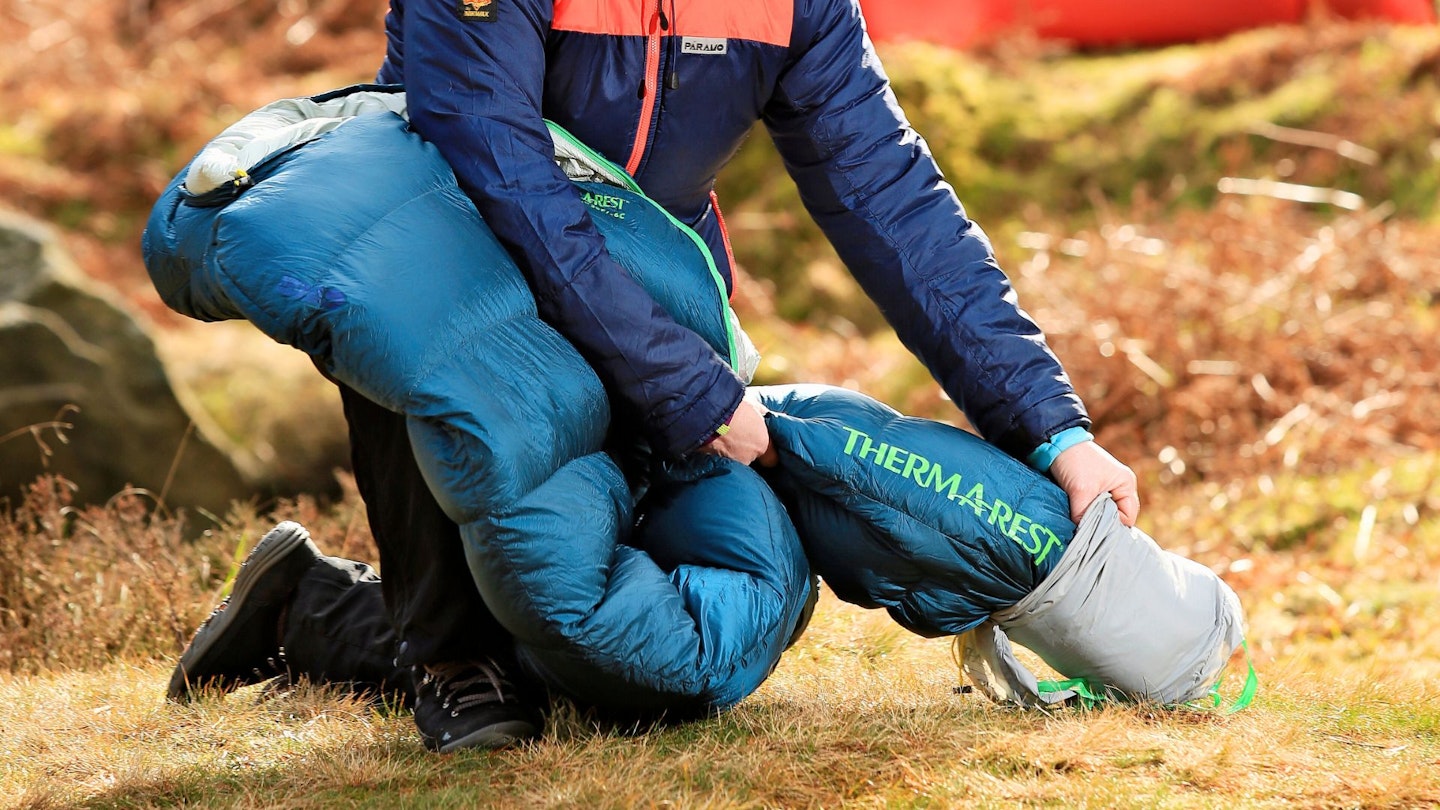
A step-by-step guide to stuffing your sleeping bag
-
Unzip the thing completely: Begin by unzipping your sleeping bag fully. This reduces tension on the zipper but most importantly allows air to escape more easily.
-
Start with the footbox: Grab the foot end of the sleeping bag and begin stuffing it into the bottom of the stuff sack.
-
Stuff, don’t roll: Resist the urge to roll or fold. Instead, push the fabric in haphazardly, turning the sack as you go. This method ensures that the insulation remains evenly distributed.
-
Compress and secure: Once the bag is fully stuffed, tighten any compression straps to minimise its size.
Storage
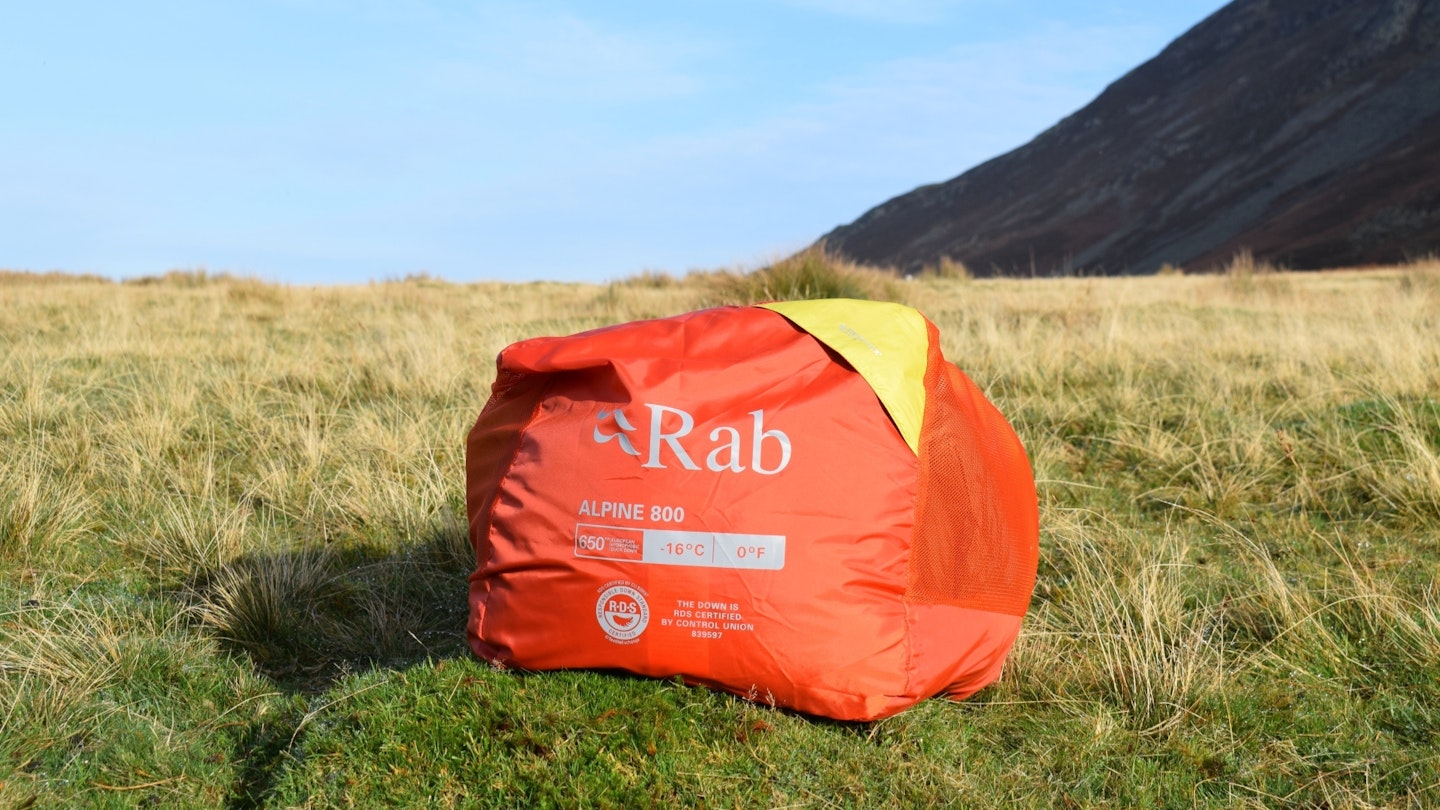
After each weekend or holiday, storing your sleeping bag properly is essential for preserving its loft and extending its lifespan.
Storing it compressed for long periods is akin to leaving bread dough tightly wrapped in clingfilm – restrictive and damaging to its structure, and highly impactful on soft, fluffy textures. (We've thought about that one).
To keep your sleeping bag in tip-top shape, a few thoughtful measures can go a long way. These are:
Use a large storage sack
Instead of cramming your sleeping bag into its stuff sack for months on end, opt for a large, breathable storage sack or hang it in a dry, spacious wardrobe or cupboard.
This allows the insulation to stay fluffy and resilient, a simple step that ensures your sleeping bag will retain its warmth and comfort for years to come.
Avoid damp areas
Damp is the main predator of the sleeping bag species. Always store your bag in a cool, dry place to prevent mould and mildew from setting in – add a couple of those cheap block dehumidifiers if you're at all worried
Additional tips for sleeping bag care
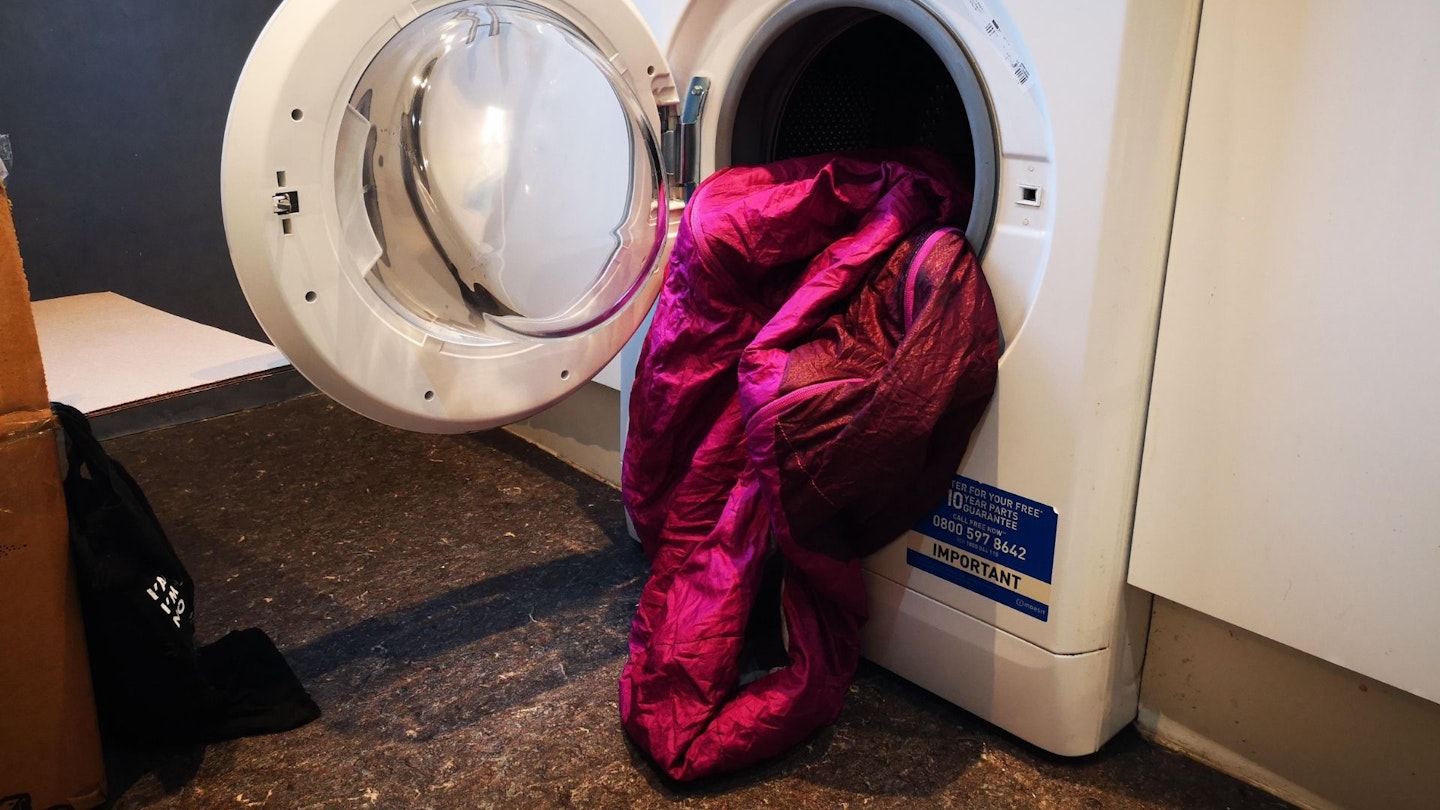
A little routine care can make a world of difference in keeping your sleeping bag cosy, clean and functional. Here are some additional tips to help you maintain things:
Regular cleaning
Keeping your sleeping bag clean is important, but it’s best to avoid frequent, full washes unless absolutely necessary. Spot cleaning is your go-to for small messes, as this minimises wear and tear while maintaining freshness.
Use a liner
A sleeping bag liner is a fantastic way to reduce the need for washing your bag. Acting as a protective barrier, it helps preserve the bag’s insulation and fabric.
It's essentially a sheet for your sleeping bag – a simple trick that pays off in the long run.
Air it out
After each trip, take the time to air out your sleeping bag. This helps eliminate moisture and odours, keeping your bag fresh and ready for the next adventure.
Consider this step as the post-adventure equivalent of letting a good wine breathe. A little air can make a big difference.
See our full guide on washing your sleeping bag for more.
About the author

Fliss Freeborn is a writer for LFTO who has been camping and hiking all her life. She has never knowingly folded anything in her life except paper aeroplanes and the front driver side panel of a Skoda Fabia.
